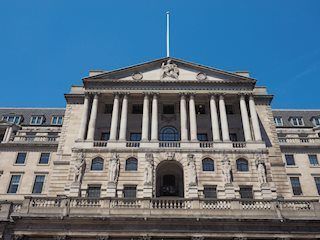BoE DMP Survey: UK firms’ inflation expectations increase to 2.8% in the December quarter
|
The latest Bank of England (BoE) Decision Maker Panel (DMP) quarterly survey released on Thursday showed that “one-year ahead expected CPI inflation by the UK firms increased by another 0.1 percentage points to 2.8% in the quarter to December.”
Key takeaways
Year-ahead own-price inflation expected to be 3.8% in the three months to December, 0.1 percentage points higher than firms reported in the three months to November.
Firms' expectations for CPI inflation a year ahead rose from 2.7% to 2.8% in the three months to December.
Firms' expected year-ahead wage growth remained unchanged at 4.0% on a three-month moving-average basis in December.
Asked about National Insurance contributions (NICs) rise, 61% of firms expect to lower profit margins, 54% expect to raise prices, 53% expect lower employment and 39% expect to pay lower wages.
The survey is one of the most closely watched by members of the BoE's Monetary Policy Committee (MPC).
Market reaction
At the press time, GBP/USD is off 14-month lows of 1.2239 but remains heavy below 1.2300.
BoE FAQs
The Bank of England (BoE) decides monetary policy for the United Kingdom. Its primary goal is to achieve ‘price stability’, or a steady inflation rate of 2%. Its tool for achieving this is via the adjustment of base lending rates. The BoE sets the rate at which it lends to commercial banks and banks lend to each other, determining the level of interest rates in the economy overall. This also impacts the value of the Pound Sterling (GBP).
When inflation is above the Bank of England’s target it responds by raising interest rates, making it more expensive for people and businesses to access credit. This is positive for the Pound Sterling because higher interest rates make the UK a more attractive place for global investors to park their money. When inflation falls below target, it is a sign economic growth is slowing, and the BoE will consider lowering interest rates to cheapen credit in the hope businesses will borrow to invest in growth-generating projects – a negative for the Pound Sterling.
In extreme situations, the Bank of England can enact a policy called Quantitative Easing (QE). QE is the process by which the BoE substantially increases the flow of credit in a stuck financial system. QE is a last resort policy when lowering interest rates will not achieve the necessary result. The process of QE involves the BoE printing money to buy assets – usually government or AAA-rated corporate bonds – from banks and other financial institutions. QE usually results in a weaker Pound Sterling.
Quantitative tightening (QT) is the reverse of QE, enacted when the economy is strengthening and inflation starts rising. Whilst in QE the Bank of England (BoE) purchases government and corporate bonds from financial institutions to encourage them to lend; in QT, the BoE stops buying more bonds, and stops reinvesting the principal maturing on the bonds it already holds. It is usually positive for the Pound Sterling.
Information on these pages contains forward-looking statements that involve risks and uncertainties. Markets and instruments profiled on this page are for informational purposes only and should not in any way come across as a recommendation to buy or sell in these assets. You should do your own thorough research before making any investment decisions. FXStreet does not in any way guarantee that this information is free from mistakes, errors, or material misstatements. It also does not guarantee that this information is of a timely nature. Investing in Open Markets involves a great deal of risk, including the loss of all or a portion of your investment, as well as emotional distress. All risks, losses and costs associated with investing, including total loss of principal, are your responsibility. The views and opinions expressed in this article are those of the authors and do not necessarily reflect the official policy or position of FXStreet nor its advertisers.